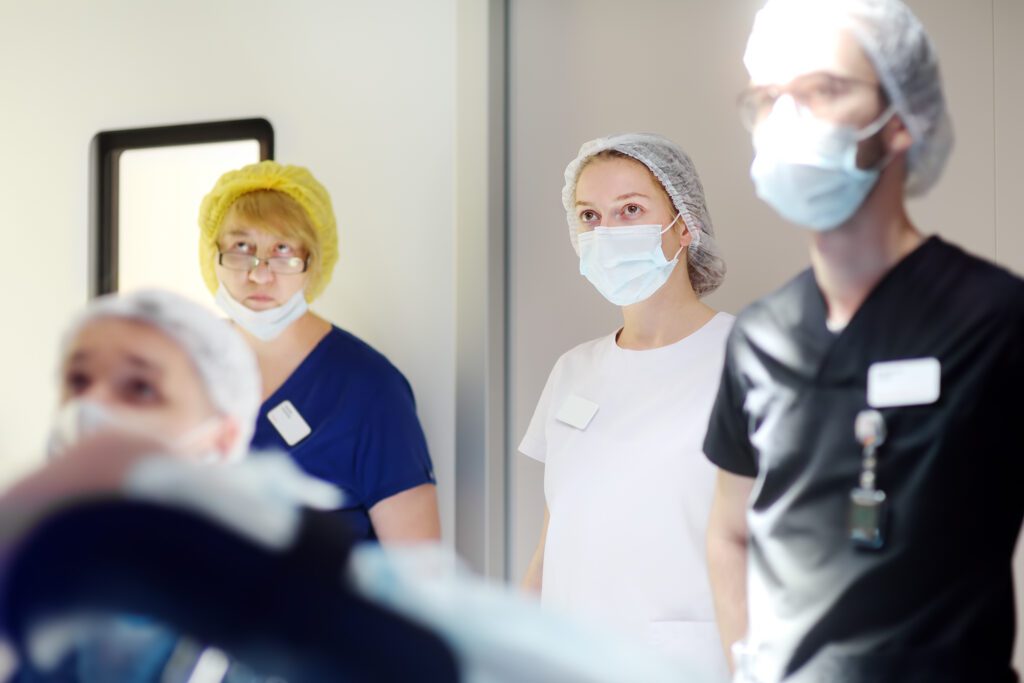6 Stress Management Tips for Residency Match Week
- by
- Mar 04, 2024
- Reviewed by: Amy Rontal, MD

As we approach Match Week 2024, the stakes are becoming more and more real. Surviving residency interviews was hard enough, but the anticipation of receiving your match results can be agonizing.
Don’t let the pressure eat away at you. Read on for tips to deal with this stress, mentally prepare for Match Week, and know what to do after your match results arrive.
What Makes Residency Matching So Stressful?
As an applicant, you have interviewed, put on your best behavior during residency open houses and second looks, and finalized your rank list by February 28th. Less than two weeks later, you find out if you have matched. Shortly after, you will know where you have been matched for residency training for the next few years.
It all seems surreal, surely, and barreling toward you at the speed of light…or not. For many applicants, Match Day seems to be slowly approaching. The anticipation of it all can be dreadful and draining as there is a lot of uncertainty to go along with the wait.
Some common concerns echoed by students awaiting to match include:
- Was my application enough?
- How many typos were there on my personal statement?
- Did I rank correctly?
- What if I put my #1 ranked program as #11 instead?
- I should’ve said “X” in my interview or asked about “X”
- Match statistics are not in my favor.
- What if I don’t fit in with the program I match to?
These are tough questions to address. And Type-A medical students are likely to struggle with this uncertainty. After all, they may feel that their careers (a potentially big part of their identities) are in the hands of a mysterious system they don’t completely understand.
If you’re struggling with uncertainty during this period, it’s important to keep a few things in mind to minimize stress levels and keep your nerves at bay:
6 Tips to Deal With Match-Cycle Stress
Tip 1: Accept what you can’t change.
Start by recognizing that you have done everything possible to get through the match process. From submitting a well-polished application to painstakingly preparing for interviews, you’ve done your job. What happens after is beyond your control.
Tip 2: Blow off steam with your hobbies.
Fight against the anxiety you may feel. Though it’s easier said than done, think about healthy ways to de-stress. For example, reclaim enjoyment for your hobbies, such as cooking, exercising, getting back into childhood sports, or trying out a new sports craze (like pickleball!).
Doing something new or falling back on an old favorite will help to take your mind off of the anxiety and stress that come with Match Day, even if only temporarily. After all, you only need to make it to March.
Tip 3: Celebrate your past accomplishments.
Remember how far you’ve come! Reflect on your medical school career and the amazing things you’ve pulled off to make it to this point. You first were accepted into medical school because of your crowning successes in undergrad. You then made it through pre-clinical courses and grueling national board exams.
Along with success on clinical rotations, you have curated a complex application requiring multiple components. You’ve interviewed with various programs around the country and learned more about your field from your peers and mentors. You have already done everything to prepare yourself for success.
When you’re able to appreciate how much you’ve accomplished, you’ll realize that the next step isn’t so hard to reach. Believe in your achievements and let what comes next be a natural process. Take a breather, as no matter what happens, you will rise to the occasion and make the best out of it.
Tip 4: Find the silver lining in this waiting period.
Furthermore, remind yourself that just like in medicine, there is no guarantee of how things will play out in life. Instead, direct your focus toward something you can control, such as your outlook. Shift your perspective and view this period of uncertainty as a gift.
Like finishing a stressful final exam, there’s really nothing you can do between the end of the test and finding out the result. Instead, use this interlude to focus on anything but studying, or applications, or matching.
You might focus on aspects of life that fell to the wayside as you worked, such as reconnecting with family, resuming your regular workout routine, or simply cleaning your living space.
This is also the perfect time to bond with your medical school friends as you approach the finish line together. This is a bittersweet time that will pass before you know it, a time of relative freedom prior to when you all go your separate ways and start living very different lives. Eat, drink, dream, and enjoy the camaraderie of your classmates. Have one last hurrah!
Tip 5: Start drafting a contingency plan.
Additionally, it doesn’t hurt to plan ahead and have a contingency for whatever might happen. Consider all possibilities.
For example, have a plan for the city you might be doing residency in. This includes finances, housing (ideally close to the hospital and clinic), transportation—everything from how you get to work to how you get groceries. There’s a huge difference in what you’ll need to plan for if you stay at your home institution versus moving to the most expensive city in the U.S. for residency.
Furthermore, have a game plan for the worst-case scenario, if you don’t match. That does not mean the door is automatically closed, and you may be able to S.O.A.P (Supplemental Offer and Acceptance Program) into another program. Learn more with Blueprint’s article on “S.O.A.P.”
Tip 6: Proactively seek out professional help.
Practicing self-care and looking after your mental health are important duties that might’ve fallen by the wayside during the application cycle. If you’re suffering excessive anxiety leading up to matching, this might be a sign that you would benefit from counseling or some other form of guidance or therapy from a licensed professional.
Match Day is a big event in your career, but it certainly won’t be the first or last time that you face uncertainty and the unknown, whether it be in work or in life. If aspects of your career are causing you significant distress and impeding your mood or day-to-day life, you will be at higher risk of suffering burnout down the line.
Addressing such issues earlier will prevent them from worsening and taking you by surprise during residency.
Match Day and the weeks leading up to it is a time to celebrate all the work you have put in thus far. There is a measure of excitement despite the uncertainty inherent to the process. Remind yourself of what you’ve accomplished and be thankful for the opportunity. Trust the process and then will you realize that no matter what the outcome, you will pull through and create a satisfying career for yourself.
About the Author
Mike is a driven tutor and supportive advisor. He received his MD from Baylor College of Medicine and then stayed for residency. He has recently taken a faculty position at Baylor because of his love for teaching. Mike’s philosophy is to elevate his students to their full potential with excellent exam scores, and successful interviews at top-tier programs. He holds the belief that you learn best from those close to you in training. Dr. Ren is passionate about his role as a mentor and has taught for much of his life – as an SAT tutor in high school, then as an MCAT instructor for the Princeton Review. At Baylor, he has held review courses for the FM shelf and board exams as Chief Resident. For years, Dr. Ren has worked closely with the office of student affairs and has experience as an admissions advisor. He has mentored numerous students entering medical and residency and keeps in touch with many of them today as they embark on their road to aspiring physicians. His supportiveness and approachability put his students at ease and provide a safe learning environment where questions and conversation flow. For exam prep, Mike will help you develop critical reasoning skills and as an advisor he will hone your interview skills with insider knowledge to commonly asked admissions questions.









